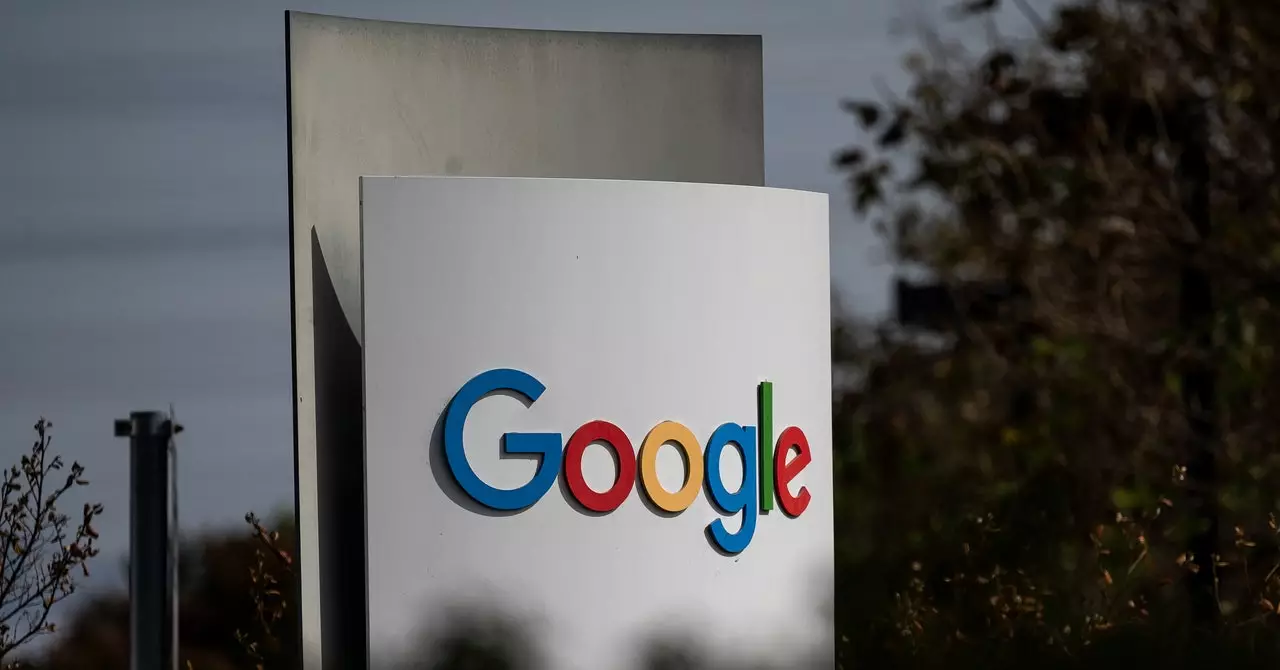As the digital landscape evolves, the competition among artificial intelligence (AI) chatbots is intensifying. Google’s generative AI chatbot, Gemini Assistant, is particularly positioned to become a formidable competitor against existing giants like OpenAI’s ChatGPT. However, recent developments in regulatory scrutiny and the company’s strategic shifts signal that Google may navigate a rocky road if it hopes to establish Gemini as a market leader.
In light of ongoing antitrust concerns, Google has found itself on the defensive. A recent US federal court filing revealed Google’s proposal to limit its control over partnerships with device manufacturers, browsers, and telecommunications companies. The proposal showcases a remarkable shift away from Google’s traditional modus operandi, which established its dominance through exclusive agreements, by potentially allowing more freedom within its partner ecosystem.
Crucially, the company’s willingness to ease restrictions over how its partners manage default search options represents a strategic maneuver designed to placate regulators and fend off potential legal repercussions. However, this concession raises questions about whether Google can maintain its competitive edge without the same rigorous agreements that previously bolstered its market share.
The backdrop to these developments includes a significant ruling by Judge Amit Mehta, who concluded that Google’s past practices—particularly, its arrangements to be the default search engine across various platforms—constituted violations of federal antitrust laws. The court determined that such agreements potentially hindered competition and allowed Google to inflate ad prices, compromising market fairness.
As the legal proceedings continue, the anticipated penalties from the upcoming hearings slated to start in April could reshape how Google operates its search and AI services. Investors are remaining optimistic about Alphabet’s market performance, evidenced by a substantial surge in share prices. However, this optimism could evaporate if the penalties imposed significantly impact Google’s ability to innovate or market effectively.
Historically, Google’s success has hinged on the convenience presented by default settings. For many users, the path of least resistance has been to stick with pre-installed applications, which often happen to be Google products. This user behavior is a double-edged sword; while it provides stability and user loyalty, it also limits Google’s incentive to innovate aggressively or diversify its offerings.
The question of user choice arises sharply amid the emergence of AI chatbots. With alternatives like ChatGPT gaining traction, users are presented with a growing array of chatbot options. This changing landscape challenges the notion of defaults, compelling Google to rethink its user connect strategy for Gemini. Promoting Gemini effectively may require a nuanced approach, one that entices users without the kind of coercive agreements that have previously constituted a significant part of Google’s business strategy.
Despite the regulatory challenges that loom large, Google’s opportunity to foster partnerships remains intact, albeit in a more flexible manner. The company can still pursue promotional agreements with hardware manufacturers—a crucial avenue for ensuring that Gemini reaches a broader audience. By offering incentives to partners like Samsung, Google can leverage its established relationships to introduce Gemini Assistant as a preferred AI solution, provided such arrangements comply with the proposed restrictions.
The landscape for AI chatbots is dynamic, with Google’s Gemini poised to carve out its niche if it can adapt effectively to these constraints. Collaboration with channels outside its traditional limitations might lead to innovative product offerings and enhance user engagement, giving Gemini a competitive point of differentiation in a crowded market.
The road ahead for Google’s Gemini Assistant is fraught with both challenges and opportunities. While regulatory scrutiny can hinder swift innovation, it can also prompt Google to adopt a more customer-centric approach, potentially leading to long-term sustainable practices in AI development.
As competition heats up between tech giants, Google’s ability to navigate changes and broaden its partnership framework will ultimately determine the success of Gemini Assistant. Only time will tell if Google can effectively shift gears to leverage the full potential of its generative AI capabilities while maintaining compliance in an increasingly regulated environment.

